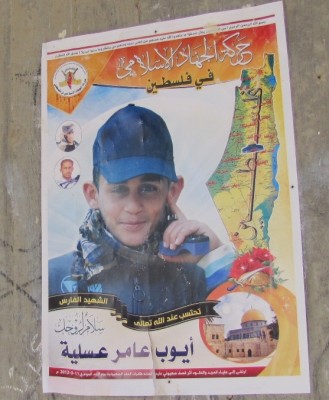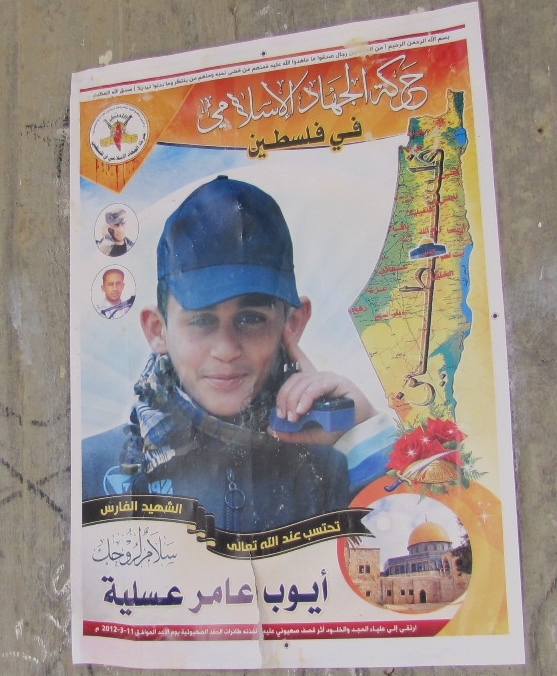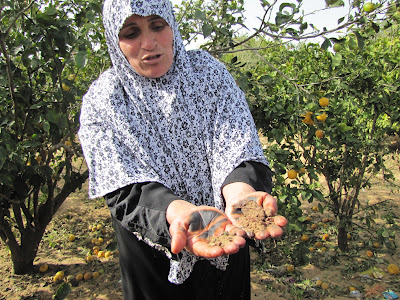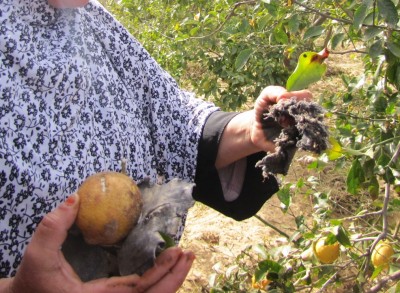by Johnny Bravo
19 March 2012 | International Solidarity Movement, Gaza
I have read several accounts over the last few days of how life in Southern Israel has become unbearable for the people living there. In retaliation for the latest provocation by Israel over 200 rockets were fired from Gaza into Israel. 11 people were injured, one seriously. Most were suffering from “shock”. Two were injured when they tripped on the way to secure areas.
Minister of Strategic Affair and deputy premier Moshe Yaalon on Thursday said, “Anyone threatening us is risking his life. We will retaliate until they beg us to stop.”
Foreign Minister Avigdor Liberman said Israel makes its “best effort to target terrorists and not the civilian population,” but added: “We will not accept the constant disruption of life in the south of Israel, and I advise all heads of terror to think well about their actions.”
U.S. State Department spokeswoman Victoria Nuland condemned “in the strongest terms” the rocket fire from Gaza into southern Israel. “We call on those responsible to take immediate action to stop these cowardly acts,” she said in a statement Saturday.
U.S. Secretary of State Hillary Clinton condemned the rocket fire from Gaza into Israel. Meeting with opposition leader Tzipi Livni in New York, Clinton said Israel has the right to defend itself.
Why is it that the Palestinians have no right to respond to Israeli aggression? If rocket fire into Israel is a “cowardly” act, what exactly is bombing with F-16’s and drones? Why does Israel have a right to defend itself, but no such rights extend to the Palestinian people?
With the exception of the two men Israel assassinated on Friday, Zuhair al-Qaisy, secretary-general of the Popular Resistance Committees, and Mahmoud Ahmad Al-Hanini, a Hamas military leader, the Palestinians killed remained nameless in all mainstream media accounts.
But I assure you, those killed have a name, and each has a family that grieves for them.
Adel Alessy, sixty-one-years-old, was working as a watchman on a piece of farmland. Saleh, his son, said people came to his house to tell him his father had been killed in an air strike at 10:45 am Sunday morning. “My father was known by all the people in this area and everyone liked him,” said Saleh, “He was working hard, trying to feed his family.” He added, “There were no rockets shot from the farm that day. The Israeli’s know that, but they wanted to do this crime to prevent our farmers from working on their land.”
Adel’s brother Mohammed added, “He worked hard his entire life, and he never refused to help anyone who asked for help.” Adel Alessy is survived by his wife and seven children.
On Tuesday morning Muhammed Mostafa El-Hasami, seventy-two-years-old, and his daughter Fayza, thirty-five-years-old, went to spend the day planting at their small farm. Dr Abed Allalah, his son, explains, “My father was a teacher as well as a farmer for the past 40 years.” Two rockets were fired from the adjoining property. One rocket failed and crashed into a greenhouse, starting a fire. Abed said, “My father and sister went to put out the fire when an Israeli drone targeted them. When we heard the bombing, we went to see what happened and found both my father and sister on the ground in pieces. Fayza’s mother heard her last words, “I am dying.” Her husband died within minutes of arriving at the hospital.
Adel told me, “Israel must be pressured to stop targeting innocent civilians. They must stop killing women, children, and old men. I believe Israel knows they are killing innocent people but they don’t care, because no one in the world is confronting them.” A wife, three sons and four daughters remain to grieve the loss of a beloved father and sister.
Um Mohammed, the mother of twelve-year-old Ayoub Asalya told me how her son was afraid when the air strikes began, and how he slept restlessly by her side the night before his death. Before he left for school he bargained with his mother. She would buy new sandals for him and he’d buy her a gift on mother’s day. A few minutes after he left the house his mother heard an explosion.
She ran out she found Ayoub’s cousin, Wafi, face down in the street. Ayoub’s body was found less than thirty yards from the house in the orchard, under a lemon tree. One of the neighbors said he couldn’t recognize Ayoub. Um Mohammed said, “I can’t imagine my son, who I was just talking with, lying in pieces.” Both legs were severed. One leg was not recovered.
A breeze rustles through the lemon trees. Um Mohammed picks a lemon from a tree that is splattered with Ayoub’s blood. Shreds of his clothing lie scattered on the ground. “The Israeli’s claimed they targeted fighters,” she said, “Do they think Ayoub was shooting rockets? Where are the human rights of the Palestinian people?” Ayoub was the third child of Um Mohammed killed by the Israelis. “Now who will bring me a gift on Mothers day?” she asks.
The injured also have names, dreams, and memory. I was unable to lift my camera to record their injuries, but stood alongside them, silent. A friend did document the injured. You can view photographs of them here: https://palsolidarity.org/2012/03/casualties-of-the-last-attacks-on-gaza-visit-to-shifa-hospital/. No one was crying. Their injuries were severe. Moath Abo al-Eash, twenty-years-old, suffered burns to his face and hands, smoke inhalation, and shrapnel wounds to his chest, torso, hands and face. When asked what message he would like to send to the world, he said, “My picture is enough to tell the world.”
But I am afraid it is not enough. The Clintons, Nulands, Yalons and Libermans of the world are not so easily swayed. The human misery they inflict on Palestine and the rest of the world does not influence their political calculations. They have the power, the money, the sophisticated weapons, and a complicit media. But I can also tell you this; the Palestinian people bear their burden with dignity. Like the people of Libya, the people of Egypt, the people of Bahrain, the people of Syria, and people around the world, they demand their freedom. They will never beg.
Johnny Bravo is a volunteer with International Solidarity Movement (name has been changed).




